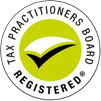The ATO has recently stepped up its cash economy letters program to small businesses. The ATO have indicated that around 100,000 letters will be issued to businesses over a 12 month period that are operating outside the small business benchmarks for their particular industry.
Part of this program involves identifying businesses reporting net income that appears to be lower than that required to support the business operator’s personal living expenses.
The ATO has developed 3 types of benchmarks for small businesses:
- Performance benchmarks to help taxpayers compare and check the performance of their business against other businesses in their industry.
- Input benchmarks which are based on information industry participants and trade associations provide to the Taxation Office. Input benchmarks show an expected range of income for tradespeople based on the labour and materials they use.
- Cash sales benchmarks showing the ratio of cash sales to total sales. Benchmarks are published for different turnover ranges and different average sales values. Cash sales benchmarks have been developed using information reported on activity statements for the 2008-09 income year and data provided by banks.
The benchmarks have been released for over 100 different business activities across 9 industries.
Comparing a business against the industry benchmarks is one way the ATO will identify businesses for audits.
The letters have an advisory function with a voluntary disclosure option and encourage taxpayers to review their records to ensure they have correctly reported all income, especially cash transactions. There is no obligation on taxpayers to respond to these advisory letters.
The ATO have said that around 5,500 small businesses will be selected for an audit through the correspondence audit program.
In either situation, it is vital that business owners have kept proper records and documented reasons to support why the business is operating outside the benchmarks.
Business owners and their tax advisors need to carefully review these letters to ensure that the correct industry classification for the business has been applied by the ATO and to determine whether the business has received either an advisory letter or has been selected for an audit.
This distinction is important for a number of reasons including the imposition of administration penalties. Where the business makes a voluntary disclosure to the ATO prior to being selected for an audit, the administration penalty that is imposed (ranging from a flat rate of 25% to 75% of the tax shortfall amount) is reduced by 80%. A 20% reduction applies if disclosure is made during an audit.
Where the business has its taxable income increased in an audit, it will be subject to both additional primary tax and GST, an administration penalty and an interest charge.




